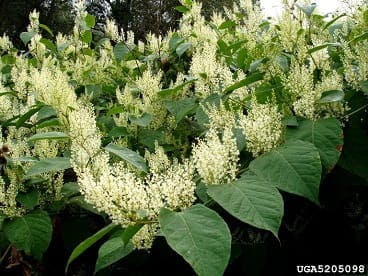Ingham County will soon be able to fight invasive species more effectively with the help of a monetary award through the Michigan Invasive Species Grant Program.
The $96,300 grant will be utilized by the Mid-Michigan Cooperative Invasive Species Management Area, or MM-CISMA, which includes Clinton, Eaton, Ingham and Ionia counties. This region is one of Michigan’s 21 CISMAs designed to serve as a network of partnerships “working to manage and control invasive species and provide service to all 83 counties in the state.” (https://content.govdelivery.com/accounts/MIDNR/bulletins/30ca68e)
The funding will allow the MM-CISMA to continue to manage its three target species: the aquatically invasive Phragmites (a wetland grass), the terrestrially invasive Black swallowwort and Japanese knotweed. All three plants crowd native plants, and Japanese knotweed can sometimes ruin the foundations of buildings with its deep root systems.
MM-CISMA will use some of the funding to hire two strike teams to manage these species.
“My duty as coordinator is to get permission forms to go into these properties, many of them are residential properties, and then the strike team will go out and treat those properties with herbicides,” Mid-Michigan Regional Invasive Species Coordinator Samantha Strandmark said.
A large part of the CISMA approach to invasive species management involves community outreach.
“We consider our CISMA teams the boots on the ground,” Joanne Foreman, Invasive Species Program Communications Coordinator for the DNR, said. “They have partners and familiarity with their communities. … They are very important frontline, getting information about invasive species out to the community, and also making sure those communities have the resources to either report an unusual species … or else work on invasive species issues in our backyards.”
According to Strandmark, these teams will treat invasive species sites, like a resident’s backyard, free of charge.
Strandmark also said that this year will bring an increased focus on outreach using social media to spread valuable information on invasive species.
“I think it's fantastic to be able to announce these grants. … We're always interested in organizations or researchers that are looking to do work on invasive species in Michigan,” Foreman said. “We're always grateful for the kinds of resources that Michigan is able to put forward so we can get all these projects taken care of.”
Support student media!
Please consider donating to The State News and help fund the future of journalism.
Discussion
Share and discuss “Ingham County awarded state funds to fight invasive species” on social media.







